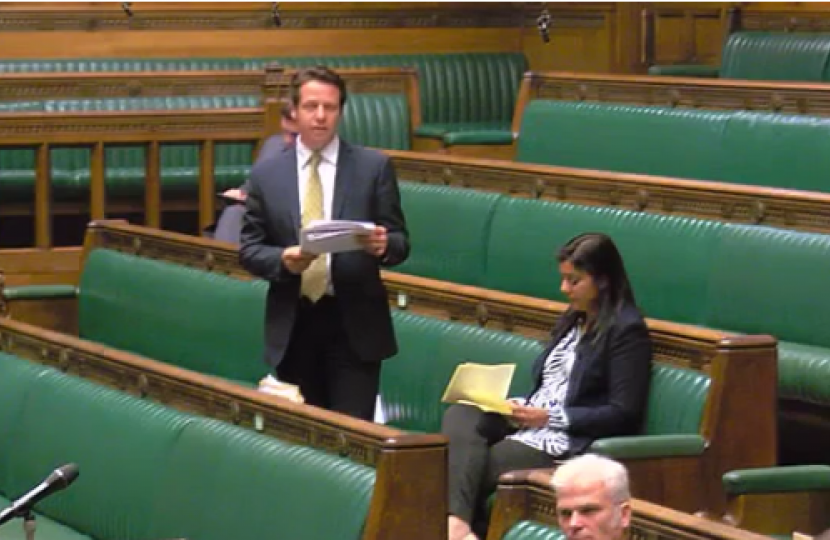
Yesterday I spoke in the second of four days of debate on the content of last Wednesday’s Queen’s Speech.
In the gracious speech, her Majesty spoke of legislation to be introduced to “improve Britain’s competiveness and make the United Kingdom a world leader in the digital economy”.
My speech focused primarily on the content of the Digital Economy Bill which will make Britain a world leader in digital provision. The proposals include: a broadband Universal Service Obligation giving people the legal right to have a fast broadband connection installed, with the initial speeds being 10Mbps; Ensuring consent is obtained for direct marketing to protect consumers from nuisance calls and spam emails; and protecting children by introducing age verification to access pornographic material online.
Britain must be a nation where technology continuously transforms the economy, society and government. The UK has embraced digital transformation, and it is one of the most advanced digital economies on the planet.
According to the Centre for Retail Research, UK consumers will spend an average of £1,372 per person online this year. Online retail as a percentage of total retail is 23% in the UK, which is more than double that of Germany and three times that of the US.
At 12.4% of GDP, the UK internet economy is the largest of the G20 countries—it is double the size of the US internet economy, three times that of Germany and nearly four times that of France.
The digital economy employs more than 1.5 million people and is growing at more than double the rate of GDP growth. Clearly, we are already in a leading position in the world. The issue is not so much about becoming a world leader in the digital economy, but retaining and further strengthening our leadership position.
